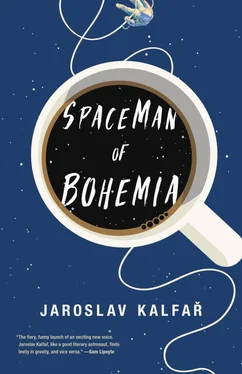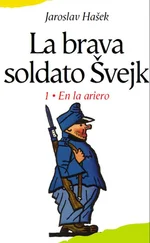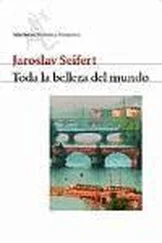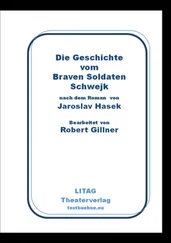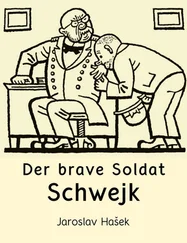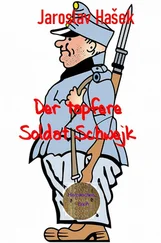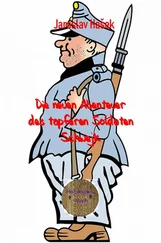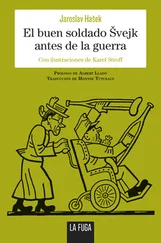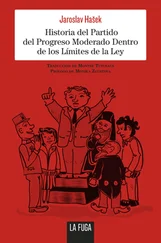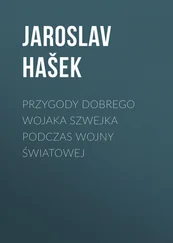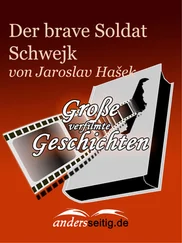Radislav Zajíc saw me. I raised my fist and slugged him across the jaw. He fell to the ground too easily, and I studied the spot on my wrist where something had cracked. My third knuckle collapsed, creating a darkened crater. Blood burst out. The schoolteacher hurriedly gathered the children and led them away from the square.
Zajíc stared up at me. Gone was the defiance he’d shown to my grandfather—he was not daring me; he was not baiting. He simply waited, looked on with gentle curiosity. If you decide to beat me to death, that is your business.
I extended my hand and pulled him to his feet. He walked to the statue, and I followed.
“You know, it’s been many years since someone’s hit me,” he said. “It has a sort of relief to it.”
“I’ve been saving it for a few decades.”
He put his hand on the base of the statue, brushed the vines from my name. “You should’ve seen it,” he said. “I’ve never witnessed something pass through the Parliament so quickly. People were outbidding themselves on how much we should spend on building this statue. They wanted to make it as tall as a tower. But I argued that you’d prefer something smaller, in a place that matters. I know you spent most of your time here as a student. Looking up at the sky and studying all night.”
“You and Tůma. You did this.”
“Yes and no. How did you do it, Jakub? How’d you make it back.”
“I flew, you son of a bitch. I flapped my goddamn wings and here I stand.”
Zajíc leaned against the statue, massaging his jaw.
“You sent me to Chopra. You put Tůma up to it. Say it.”
“I gave him your name, Jakub. There was nothing diabolical—”
“For what? To take the last Procházka off the Earth? I almost died. I lost her. For what.”
“It’s not the reason, Jakub. If I may.”
My hands trembled, and I put them inside my pockets. I could not show weakness. Not to him. “Yes,” I said.
“After you left Středa, I couldn’t let go of you. I’ve been married a couple of times, and each of my wives had caught me whispering your name in the dark, thinking you were a lover of mine. I watched you grow up, saw your grade reports, statements of purpose for university. I wanted to ensure they would admit you, but you didn’t need the help. I watched your grandfather’s funeral from a distance. I asked the vineyard where you and Lenka married to quote you a small rate and I paid for the difference. You’ve been a charm from the old life, and I wanted to see, always wanted to see—were you going to turn into a bastard? Was it in the blood? And you kept being good. Determined.”
“You’ve lost your mind. So what? You chose me for the suicide mission as some kind of restitution?”
“One night, when we were drunk, Tůma told me about his space program dream. I laughed at him at first, but he was serious, he grabbed me by the collar and swore it would happen. I used to think he was the man the country needed, you know? Before we became cynical together. He used to believe in feeding both the citizens’ stomachs and their souls. He believed in science and curiosity and books. He made me think of you. And so I gave him your name, Jakub. It seemed inevitable, the two of us in that moment. It was not to punish you or to reward you. It was a reaction to what seemed a cosmic calling. Tůma gave you the choice, and you decided to do something great, just as I expected.”
“I’ve done nothing. I should’ve stayed with the things I knew. Certainties. You’ve never been anything but a sad, hateful man. You let my father win and you let him ruin us both.”
“Hmm,” he said, “yes, some of that is true. But you have done everything, Jakub. The mission was a failure but the country believes we can be great. You should have seen the funeral. The whole city was alive like I’ve never seen it. Dignitaries came from all over the world to pay their respects. And now you’re back—I don’t know how, I don’t know what you’ve had to do, but you are here, and we can bring you back to the nation. A hero’s return. They will go apeshit for it, Jakub. You will be a king. Whatever you think you have lost, you will get it back a thousandfold.”
I thought of it. The news headlines, the interviews, everything I had expected upon my return but intensified to a point of frenzy, endless questions, how is this possible, what brought me back? Would this resurrection mean the return of Lenka? The end to her peace.
No. I could not. I had given them everything. They had no right to ask for more.
“That won’t happen,” I said. “I stay dead. I’ve earned it.”
“You’re certain?”
“I am. I want the quiet life.”
“Well, I suppose it makes no difference to me. My trial is in a month. Unless I decide to flee the country, which I’m still considering. My own quiet life in the Caribbean. Either way, Jakub, it seems that the big missions of our lives are over.”
“What was yours?”
“Helping democracy with heaps of cash.”
“You’re a thief.”
“I became one, yes.”
“What do you think of my father now? You can’t think you are better than him, not anymore. This pain you’ve caused to get revenge on a dead man, the people you’ve ruined in the process. The point of it all.”
“May I show you something? It requires a short trip.”
“I’m not going anywhere with you.”
“Don’t be stupid, Jakub. I’ve watched you grow up. I wish you no harm.”
What else was there to do? I did not want for this meeting to end, for this man who knew me, the last remnant of my life before the mission, to leave. I followed him through the grass field and between the trees, where we reentered the city and a suited driver opened a door to a black BMW. We sat on the leather seats and Zajíc offered a glass of Scotch. I drank it down without pause. Was it a betrayal to my grandfather that I sat next to this man, spoke to him? He couldn’t blame me for wanting to understand. To know every bit of influence that had gotten me here. The seat cooled my back, I poured another drink, wondering what it was like to be a man who lived such luxuries every day, molding them into a barrier shielding him from the terror of being ordinary. Zajíc studied me and all these decades later I still worried he could read me easily, the gestures of a frightened boy.
We arrived at a building in New Town. The chauffeur opened the door and I stood before a delicatessen storefront. The building was eight stories tall, made in the old republic, before the war and before the communist housing projects. Shoe Man gestured for me to come through the front door to the top of the stairwell. There he removed a set of keys from his pocket and opened a door made of metal. It creaked, and I noticed deep scratches upon it.
As I hesitated, Zajíc entered the room. The windows were covered in black paper, leaving the room concealed in shadow. Something clicked. Lamplight illuminated the room, and Shoe Man stood by a desk stained with blood, its drawers having been removed. The lamp—small, with a rusty neck and harsh, invasive light—and a green folder were the only items on the desk. The only other piece of furniture in the room was a wooden chair covered in thick deep cuts, pieces of duct tape sticking to its legs and back. The chair faced the blacked-out windows. On the dusty stone floor in front of it rested the artifact of my life’s history. The iron shoe.
“Is this real?” I said.
“When I met your father, the basement where the usual torture rooms were located was being fumigated for rats. The secret police kicked a few of the less important bureaucrats out of their offices, and made these provisional chambers. Can’t let vermin get in the way of interrogation.”
Читать дальше
